

- David A. Schwartz
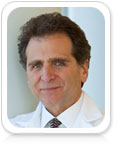
- University of Colorado,USA

- Sanjay Sethi
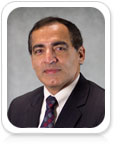
- The State University of New York, USA.

- Jadwiga A. Wedzicha

- University College London Medical School, UK

- Min-Jong Kang
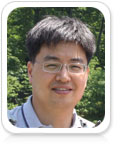
- Yale University School of Medicine, USA

- Gye Young Park
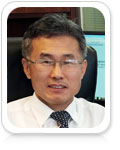
- University of Illinois at Chicago, USA

- Jiyoun Kim
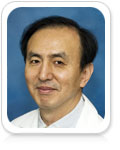
- Boston University School of Medicine, Boston, USA

- Jin-Ah Park
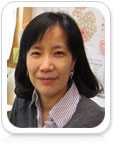
- Harvard University, School of Public Health, USA

- Alberto Papi
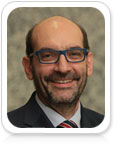
- Research Centre on Asthma and COPD, University of Ferrara, Italy

- Paul Jones

- St. George's Hospital, University of London, London, UK

- Won-Kyung Cho

- Yale University School of Medicine

- Don D. Sin
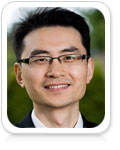
- University of British Columbia, Canada

- Sang-Do Lee, MD, Ph.D
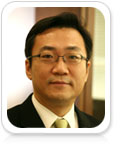
- Asan Medical Center, Korea

- You Sook Cho, MD, Ph.D

- Asan Medical Center, Korea
- Joon Beom Seo, MD, Ph.D
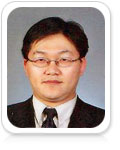
- Asan Medical Center, Korea
- Sei Won Lee, MD, Ph.D
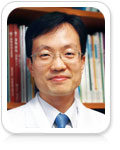
- Asan Medical Center, Korea
- Ho Joo Yoon, MD, Ph,D
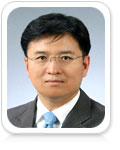
- Han Yang University Medical Center, Korea
- Yong Bum Park, MD
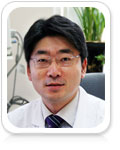
- Kangdong Sacred Heart Hospital Hallym University, Korea
- Chang-Hoon Lee, MD, Ph.D
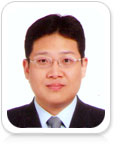
- Seoul National University Hospital, Korea
- Sang Yeub Lee, MD, Ph.D
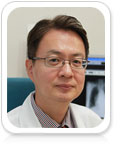
- College of Medicine, Korea University, Korea
- Deog Kyeom Kim, MD, Ph.D
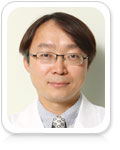
- Byung-Jae Lee, MD, Ph.D
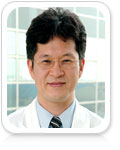
- Samsung Medical Center, Korea
- Sang-Hoon Kim, MD, Ph.D

- Eulji General Hospital, Korea
- Seong Yong Lim, MD, Ph.D
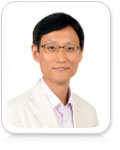
- Kangbuk Samsung Medical Center, Korea
- Cheolseok kwon
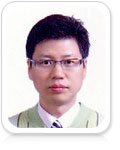
- Asan Medical Center, Korea
- Young Ho Kim
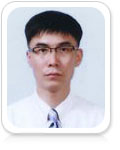
- Asan Medical Center, Korea
- Yun Ok Kim

- Asan Medical Center, Korea
- Hye Young Cha

- Ulsan University Hospital, Korea
- Mi Hee Seo

- Seoul National University Hospital, Korea
- Seung Hee Seo

- Asan Medical Center, Korea
- David A. Schwartz
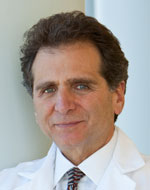
- University of Colorado,USA
- DavidSchwartz is a professor of medicine and immunology at the University of Colorado and National Jewish Health, and is serving as the Chair of the Department of Medicine at the University of Colorado. Throughout his career, Dr. Schwartz has made numerous contributions toward understanding the role that biological and genetic determinants play in the onset of diseases that are influenced by the environment. These efforts have provided new insights into the genetics, epigenetics, and genomics of interstitial lung disease, asthma, and innate immunity. Prior to moving to Denver, Dr. Schwartz served as Director of the National Institute of Environmental Health Sciences at the NIH. While at the NIH, he developed the Genes, Environment and Health Initiative, the EpigenomicsRoadmap Initiative, and a program in translational research in environmental sciences. Between 2000 and 2005, Dr. Schwartz served at Duke University, where he held concurrent positions as Vice Chair for Research and Director of Pulmonary and Critical Care Medicine.While at Duke, Dr. Schwartz established three interdisciplinary Centers in Environmental Health Sciences, Environmental Genomics, and Environmental Asthma,illustrating his commitment to critical biomedical concerns and public health issues.He is a member of the American Society for Clinical Investigation and the Association of American Physicians, a recipient of the 2003 ATS Scientific Accomplishment Award, and a recipient of the 2013 ATS AmbersonLectureship Award.
A native of New York, Dr. Schwartz earned his BA in biology from the University of Rochester and received his MD from the University of California, San Diego. After completing a residency and chief residency in Medicine at Boston City Hospital, he completed a fellowship in Occupational Medicine at the Harvard School of Public Health. While at the University of Washington, Dr. Schwartz completed a research fellowship in the Robert Wood Johnson Clinical Scholars Program, and a Pulmonary and Critical Care fellowship. In 1988, he joined the faculty at the University of Iowa, where he rose through the ranks becoming Professor and Associate Chair of Medicine, until he joined Duke University in 2000. Dr. Schwartz recently edited a book, Medicine Science and Dreams, about the life events that attract young individuals to careers as physician-scientist.

- Sanjay Sethi
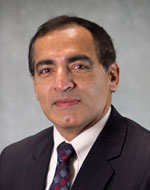
- The State University of New York, USA.
-
Sanjay Sethi, MD, FACP, is a Professor in the Department of Medicine at the University of Buffalo at the State University of New York (SUNY) in Buffalo, NY. He is Vice Chair of Medicine for Research and Chief of the Division of Pulmonary/Critical Care/Sleep Medicine at the University at Buffalo and a Staff Physician in Pulmonary/Critical Care/Sleep Medicine at the Western New York Veterans Administration HealthCare System in Buffalo.
Dr Sethi completed his internship and residency in Internal Medicine at Cook County Hospital in Chicago, Illinois, his fellowship in Pulmonary and Critical Care Medicine at the University at Buffalo and is board certified in internal medicine, pulmonary disease, and critical care medicine.
Dr Sethi’s main research interests include chronic obstructive pulmonary disease (COPD), and respiratory infections, focused on the specific areas of exacerbations, new therapeutics and innate lung defense in COPD.
Dr Sethi has co-authored more than a 140 research articles, reviews and book chapters in many peer-reviewed medical journals including New England Journal of Medicine, Science Translational Medicine, American Journal of Respiratory and Critical Care Medicine, Chest, European Respiratory Journal, Journal of COPD, Infection and Immunity, Journal of Clinical Investigation, Journal of Infectious Diseases, and Journal of Antimicrobial Chemotherapy. He is a member of the editorial board for the publications Advances in Therapy, Clinical Investigation, PlosOne, Respiratory Research and Current Respiratory Medicine Reviews. He is a member of the Lung cellular, molecular, and immunobiology study section of the National Institutes of Health (NIH), the Pulmonary study section of the VA, and an ad hoc reviewer for several North American and European research funding agencies.
Dr. Sethi is currently active in several professional organizations including the American Thoracic Society where he has chaired the Clinical Problems program committee. He has served as a consultant on the Global Initiative for Chronic Obstructive Lung Disease (GOLD) guidelines for COPD, and as a member of the Department of Veterans Affairs and Department of Defense COPD Guideline Development Committee. He is a Director of the Buffalo Institute of Medical Research. Additionally, he is a distinguished speaker presenting papers both nationally and internationally, many with COPD and Respiratory Infections as the primary focus.

- Jadwiga A. Wedzicha

- University College London Medical School, UK
- Wisia Wedzicha is Professor of Respiratory Medicine at University College London and the Royal Free Hospital. She qualified from Somerville College, Oxford University and St Bartholomew’s Hospital Medical College, London University. She has previously held senior appointments at Barts and the London Medical School (Queen Mary College London) and the London Chest Hospital. She was appointed a Fellow of the Academy of Medical Sciences in 2013.
She has a major interest in the causes, mechanisms and impact of COPD exacerbations and in the role of bacterial and viral infection at COPD exacerbation. She directs an active research group into COPD exacerbations and has published extensively on this topic. She chairs the Department of Health Home Oxygen Clinical User group. She was a member of the Guideline Development Group for the revision of the NICE COPD guidelines.
She was Editor in Chief of Thorax till June 2010 and is an Associate Editor of the ERJ. She is a member of BioMed Central and AJRCCM advisory boards and on the editorial board of a number of international journals. Till 2012 she was Guidelines Director for the European Respiratory Society and is now Publications Director for the ERS Journals.

- Min-Jong Kang
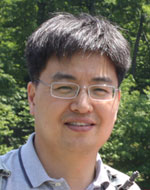
- Yale University School of Medicine, USA
- Dr. Min-Jong Kang, an Assistant Professor at the School of Medicine, Yale University, is a graduate from Seoul National University in Seoul, Korea. During his time at that institution, he received a MD Degree, completed clinical residency training, received a Masters in Public Health Degree and then received a PhD. He subsequently took a position as an Instructor and then an Assistant Professor at Hallym University in Seoul. In 2002 he joined Dr. Jack Elias’ laboratory at the School of Medicine, Yale University. Since his arrival in the United States, Dr. Kang has been intensely interested in the pathogenesis of cigarette smoke-induced lung disease, in particular Chronic Obstructive Pulmonary Disease (COPD). His early studies utilized a cigarette smoke-exposure murine emphysema model. Using this modeling system, he demonstrated that the IL-18 system plays an important role in the pathogenesis of CS-induced emphysematous lung destruction. More recently, Dr. Kang has focused on the infectious contributions to the pathogenesis of COPD. He formulated the hypothesis that dysregulated antiviral innate immune responses play an important role in the pathogenesis of COPD. His studies testing this hypothesis revealed important insight into the interaction between CS and the innate immunity resulting in a publication in the Journal of Clinical Investigation. To gain better understanding of the mechanisms, currently, his laboratory is focusing on the role(s) of mitochondrial dysfunction and immune dysregulation in the setting of smoking exposure such as those seen in patients with COPD and CS- and virus-associated disorders. By applying recent state-of-art knowledge of mitochondrial biology in this field, his vision is to establish mitochondrial dysfunction and mitochondrial injury/damage responses as a key event in the pathogenesis of COPD and CS-and virus-associated disorders and as such, to provide a new perspective of our understanding of COPD and CS-and virus-associated disorders.

- Gye Young Park

- University of Illinois at Chicago, USA
-
Dr. Gye Young Park, MD is currently an assistant professor at the Division of Pulmonary, Critical Care, Sleep and Allergy, University of Illinois at Chicago, and also appointed as the director of Pulmonary and Diagnostic Laboratory of University of Illinois Hospital and Health Sciences System. He earned a MD degree from the College of Medicine, Seoul National University, and completed post-graduate training of pulmonary and critical care medicine at Seoul National University Hospital. While working as an assistant professor at the Section of Pulmonology at Gachon Medical School, Incheon, Korea, he moved the United States to join Dr. John Christman’s lab at Vanderbilt University, Nashville, TN and has studied regulation of inflammatory gene expression and macrophage activation. He subsequently completed additional training of pulmonary and critical care as well as internal medicine in the US healthcare system. Dr. Park’s research has been supported from the Professional Development Scholars Award of UIC-CCTS funded by National Institute of Health and is conducting a study about the phenotype of alveolar macrophages in various lung diseases. He is also a principal investigator of IRB approved SBP-AG protocol (Sub-segmental Broncho-Provocation with Allergen) at UIC, seeking a research model for translational and pre-clinical study of human asthma.

- Jiyoun Kim
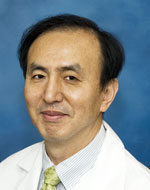
- Boston University School of Medicine, Boston, USA
- I am an Immunologist and molecular biologist at the Boston University School of Medicine. After graduating from the University of Alabama, I completed my postdoctoral training in Pathology at the University of Michigan. My research has focused on the regulation of inflammatory responses in lung diseases. My recent research interests include exacerbation of asthma by air pollutants, regulation of pulmonary expression of TNF in asthma, and understanding the mechanisms of various alternative treatments of asthma. I am a member of the American Association of Immunologists and the American Society of Investigative Pathologists.

- Jin-Ah Park
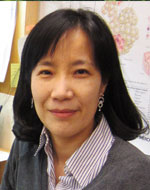
- Harvard University, School of Public Health, USA
- Dr. Park is a Research Scientist at the Harvard School of Public Health in Boston. She received her Ph.D. in Toxicology at North Carolina State University and completed her postdoctoral training in the laboratory of Drs. Jeffrey Drazen and Daniel Tschumperlin at the Harvard School of Public Health.
Dr. Park focuses on investigating how lung epithelial cells contribute to airway remodeling in patients with asthma, and how these cells facilitate intercellular communication in the lung. She has utilized an in vitro compressive system, which mimics the effects of bronchoconstriction in patients with asthma, to determine the role of airway epithelial cells in the development of airway remodeling. Dr. Park showed that bronchoconstriction-induced compressive mechanical stress itself is a signal sufficient to lead to many aspects of airway remodeling in asthma. These include changes in the mucocilliary epithelium (Am J Respir Cell Mol Biol, 2009) and production of a pro-inflammatory microenvironment, even in the absence of inflammatory cells (J Biol Chem, 2010). More recently, she identified that tissue factor–bearing exosomes are released from bronchial epithelial cells and also that they are contained in bronchoalveolar lavage fluid from patients with asthma (J Allergy Clin Immunol, 2012). Her research interests also include investigating the mechanisms of goblet cell metaplasia (Am J Physiol Lung Cell Mol Physiol. 2013).
Dr. Park is a recent awardee of a Scientist Development Grant from the American Heart Association and a Parker B. Francis Fellowship from the Francis Family Foundation. Dr. Park is a member of the editorial board for the American Journal of Respiratory Cell and Molecular Biology.

- Alberto Papi
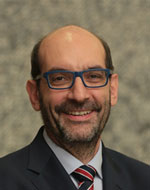
- Research Centre on Asthma and COPD, University of Ferrara, Italy
-
Alberto Papi is Professor of Respiratory Medicine and Director of the Respiratory Disease Section of the Department of Clinical and Experimental Medicine at the University of Ferrara, S.Anna University Hospital, Ferrara, Italy.
He trained in Respiratory Medicine at the University of Parma, before spending 4 years in the UK as a Clinical Research Fellow at the University of Southampton, where he is currently an Honorary Clinical Lecturer. His department is also home to the Research Centre on Inflammatory and Smoking-related Respiratory Diseases (CEMICEF). Professor Papi’s main area of research is airway inflammation in asthma and COPD, its molecular mechanisms and pharmacological modulation. In particular, he has an interest in the role of respiratory viral infections in stable/exacerbated obstructive lung diseases, and the underlying molecular and immunological mechanisms.
Professor Papi is a Member of the Asthma Board of the European Academy of Allergy and Clinical Immunology, and has previously served as Secretary of the Respiratory Infections Group of the European Respiratory Society. He is also a member of the Editorial Board of the American Journal of Respiratory and Critical Care Medicine, Thorax and the Journal of COPD. He has coordinated several pivotal studies in asthma and COPD, and has authored more than 160 articles in peer-reviewed journals.

- Paul Jones PhD, FRCP
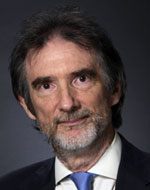
- St. George's Hospital, University of London, London, UK
-
Paul Jones is Professor of Respiratory Medicine and Head of the Division of Clinical Science at St George’s, University of London in London, UK.
His first research training was as a physiologist, but he has worked in health status measurement for over 25 years, quantifying patients’ subjective experiences of their respiratory disease. He developed the St George’s Respiratory Questionnaire (SGRQ) and more recently the Chronic Obstructive Pulmonary Disease Assessment Test (CAT) and the EXACT exacerbation diary card, among others. His current research concerns the effect of COPD on cognitive function and brain structure.
He established the Cochrane Airways Group and was its first Coordinating Editor. He is on the Editorial Board of Chest, is an associate editor of the Journal of COPD and is a member of the Global Initiative for Chronic Obstructive Disease (GOLD) Science Committee.

- Won-Kyung Cho
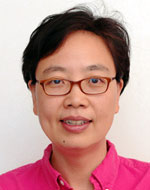
- Yale University School of Medicine
-
During my pulmonary fellowship in South Korea, I became involved in various studies in respiratory physiology and enjoyed studying this area very much. With this as background, I decided to go abroad to further develop my career as a respiratory physiologist. I was particularly interested in respiratory muscle biology, thus, I studied at the McGill University Health Center in Canada, a world renowned institution in this field. While a postdoctoral fellow at McGill, I focused on studying the pathogenesis of respiratory muscle injury and repair from various conditions such as neuromuscular disease or sepsis. My hope was to develop my own research area by employing cutting edge techniques of molecular biology in respiratory muscle physiology. Therefore, I next studied at the University of Pittsburgh Medical Center. Shortly after I started to work as an associate research scientist in Pittsburgh, Ewha Woman’s University, my alma mater in South Korea, offered me an assistant professor position, which I accepted. However, I soon returned to the U.S. to restart my career goal as a physician scientist. Following internal medicine residency in St. Louis, I joined the Yale Pulmonary and Critical Care Program as a Fellow. My research interest has shifted gradually to pulmonary vascular disease, in particular, pulmonary arterial hypertension (PAH). Although PAH is still a fatal disease, we now have many new drugs to prolong survival of patients with this disease, thanks to the efforts of many
researchers. I think this disease serves as a good model of how research can impact on clinical outcome. This belief has triggered me to pursue my academic career in this area. In particular, I was intrigued by immune pathogenesis of pulmonary hypertension. Currently I am working on the roles of various cytokines in the development of pulmonary hypertension using a few inflammatory cytokine overexpressing transgenic mice that have significant pulmonary vascular remodeling. I am now an Instructor in the Pulmonary, Critical Care and Sleep Medicine section. Thus far, I have published 7 peer-reviewed original research articles, 1 case report, 2 review papers in addition to 7 research articles from South Korea. I have also had 2 successful grant applications. I am planning to continue my career as a physician scientist.

- Don D. Sin, MD, MPH
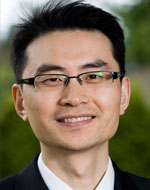
- University of British Columbia, Canada
-
Professor, Department of Medicine, University of British Columbia (UBC)
Head, Division of Respiratory Medicine, Providence Health Care
Tier 1 Canada Research Chair in Chronic Obstructive Pulmonary Disease (COPD)
UBC James Hogg Research Centre, Institute for Heart + Lung Health
St. Paul’s Hospital, Burrard Building
Room 8446 - 1081 Burrard Street, Vancouver, B.C. V6Z 1Y6
Phone: 604-806-8395
Fax: 604-806-9274
E-mail:don.sin@hli.ubc.ca
Don Sin is a staff respirologist at St. Paul’s Hospital in Vancouver and Professor of Respiratory Medicine at UBC and a Tier 1 Canada Research Chair in COPD. According to Expertscape, D. Sin is the #1 medical expert in COPD across North America and 2nd in the world (http://www.expertscape.com/ex/copd/p/earth). He has published nearly 300 peer-reviewed articles and has written numerous editorials and book chapters. He has published in the Lancet, JAMA, BMJ, and New England Journal of Medicine and Lancet. He serves on the scientific committee of the Global Initiative for Chronic Obstructive Lung Disease (GOLD) initiative (2009-present).
His main research focus is to discover novel biomarkers to improve the care and diagnosis of patients with COPD, which currently is the 3rd leading cause of death worldwide. He serves as an editorial board member of several journals including the American Journal of Respiratory and Critical Care Medicine, Chest, and European Respiratory Journal. He is an associate editor of Thorax.

- Sang-Do Lee, MD, Ph.D
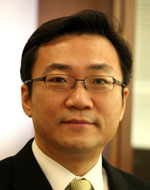
- Asan Medical Center, Korea
-
Sang-Do Lee is professor of medicine in the Department of Pulmonary & Critical Care Medicine, University of Ulsan College of Medicine, Asan Medical Center, Seoul, Korea.
Professor Lee earned his medical degree from the Seoul National University College of Medicine in 1982, and subsequently underwent general internal medicine and pulmonary medicine training at the Seoul National University Hospital. From 1996 to 1997, he was a visiting professor at the University of Colorado Health Sciences Center, Denver, CO, USA. Professor Lee earned his MS degree from the Seoul National University in 1989, and his PhD in 1991. He has taught at the Chungbuk National University, Cheongju, and has taught at the University of Ulsan since 1995. He is a director of the clinical research center for chronic obstructive airway diseases, funded by the government, since 2004. He has organized and is running an annual international symposium on airway disease (“Airway Vista”) and ANOLD (Asian Network for Obstructive Airway Diseases) since 2008.
Professor Lee is a widely published investigator, with over 280 peer-reviewed articles to his name. He has been an editor-in-chief of 'Tuberculosis and Respiratory Diseases'.




































































![AIRWAY VISTA 2014 MARCH 29[FR] - MARCH 31[SUN] ASAN MEDICAL CENTER, SEOUL](/AirwayVista2014/images/common/bg_text.png)
















